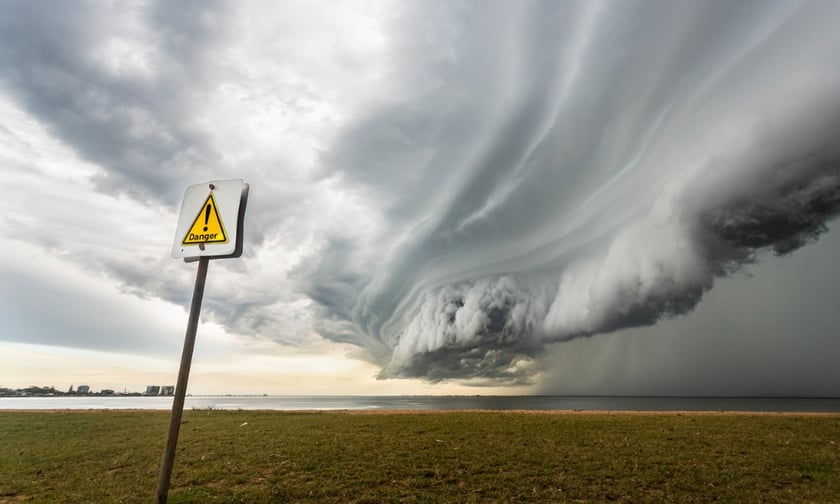Potential impact extends to southeastern US

Insurers could face potential losses of up to $15 billion if Hurricane Helene makes landfall near Tallahassee, according to Jerry Theodorou (pictured above), director of finance, insurance, and trade policy at the R Street Institute.
According to a report from AM Best, should the storm make landfall in the more sparsely populated Horseshoe/Suwannee area, located southeast of Tallahassee but north of Tampa, R Street’s estimate drops to single-digit billions, excluding insured flood losses.
Aon highlighted on Sept. 26 that Helene is an unusually large hurricane with a higher-than-average likelihood of strong winds reaching inland. The firm compared Helene to past Gulf of Mexico hurricanes, noting that it is at the upper bound in terms of size.
Aon noted that the impacts of storm surge, wind, and rainfall will extend far beyond the storm’s center, particularly on its east side. Helene’s fast forward speed is expected to carry strong winds far inland, potentially affecting areas of the southeastern US, including strong gusts over the higher terrain of the southern Appalachians.
Guy Carpenter said that only four named storms in the 21st century—Irma (2017), Ike (2008), Ivan (2004), and Isidore (2002)—have reached a similar size of tropical storm-force winds in the Gulf of Mexico.
The firm added that Tallahassee could experience significant impacts if the storm’s eyewall moves directly over the city. As Helene progresses inland, its winds are expected to decay more slowly than average due to the storm’s forward speed and frontal interaction.
The storm could bring sustained tropical storm winds and hurricane-force gusts as far inland as Atlanta. Guy Carpenter noted that Atlanta has been under tropical storm warnings six times in the past decade, but Helene’s higher intensity and rapid forward movement could result in more severe impacts than previous storms.
Theodorou commented that “more frequent and more powerful catastrophes can be expected.” He emphasized the importance of recognizing the risks posed by climate change and taking action to protect property and minimize losses.
What are your thoughts on this story? Please feel free to share your comments below.
Related Stories
Keep up with the latest news and events
Join our mailing list, it’s free!





